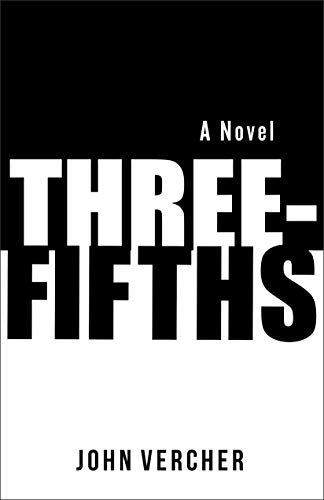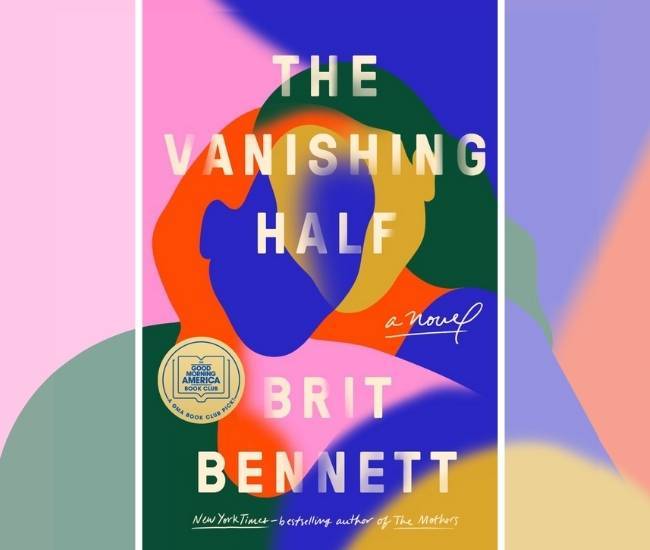The Vanishing Half
https://booktrib.com/wp-content/uploads/2020/08/the-vanishing-half-brit-bennett.jpg
In an outstanding second novel that’s now a Good Morning America Book Club pick, author Brit Bennett tackles the topic of identity, showing that who we are on the outside is only one part of us. The Vanishing Half is the story of African American identical twins in the 1950s who become separated when one makes a whimsical choice that drastically impacts their lives and the lives of their family, community and generations to come.
The Vignes sisters, Stella and Desiree, lived with their mother in Mallard, Louisiana, a small southern town made up of light-skinned people of color, and were joined at the hip. When they were younger, the girls lost their father to horrible violence that they witnessed. Once they were sixteen, their mother pulled them out of school in order to work, and the teenage girls, wanting better for themselves, ran away together. They moved to New Orleans to make a fresh start, and when Stella is mistaken as white while interviewing for a job, she decides to keep quiet and not reveal her true identity as a black woman. Finding it easy to fool people, she decides to keep her secret, skip town with a white boyfriend, abruptly leaving Desiree behind, and start a new life as a white woman.
Meanwhile, years later, Desiree has never heard from her beloved sister, Stella. She made a life with Sam, a black man, in Washington D.C. and has a job at the Bureau learning to read fingerprints. They have a dark-skinned daughter, Jude; but when Sam becomes violent and starts beating Desiree, she leaves him and takes Jude back to Mallard. The dark child causes a stir in the racially sensitive environment, and the return of Desiree to her hometown precipitates questions about Stella’s disappearance.
Desiree settles where she was raised and Bennett’s brilliant storytelling takes us from Mallard to the East coast and then California where we follow Jude as she grows up, attends college and lives her life in the 1990s. She has a meaningful and romantic relationship with a transgender man, Reese, and a chance friendship with a girl named Kennedy that ultimately leads her to the truth about her family.
The Vanishing Half is about identity, transformations, choices and acceptance. Brit Bennett has created deep, complex characters that transform as they grow; what is presented to the world and what people see on the outside is not exclusively who they are. Racial, sexual and cultural identity, family and sisterhood, as well as how we choose to present our public and private selves are explored in this deeply affecting novel.
“You did all this for a man?“
“Not for him,” she said. “I just liked who I was with him.”
“White.”
“No,” Stella said. “Free.”
Desiree laughed. “Same thing baby.”
THE BOOK
The story takes place in Mallard, Louisiana, where the African American people have intermarried with the intention of creating new generations with lighter skin. The idea for this town came from a conversation Brit had with her mother about a town similar to Mallard and the idea stuck with her. Brit worked on this book for four to five years, and she felt more pressure than when she was writing her debut, The Mothers, but also felt more confident, knowing she had done this before.
The characters in her book mostly came from her imagination, but the fingerprint analyst job was something her mother did, and so she used it in the book, as it fits in nicely with the “identity” theme.
Jude’s love interest, Reese, is a fan favorite and Brit is excited to see how he is portrayed on screen.
Brit said Jude is different than she is but has fragments of herself; they both are introverted, pragmatic, guarded and ambitious.
The book is about choices, and small ones can have larger ramifications. In a fleeting moment, Desiree decides to live as a white woman, and it affects her family and future generations. Identity is complicated and she hopes her story gets readers to think and feel and enjoy.
CURRENT TIMES
Brit indicated that although she was encouraged that people were responding to the current events of today by reading about race, it was an overwhelming tragedy to witness George Floyd’s murder for close to 10 minutes, and she hopes the momentum of speaking out will be converted to real actions and not just symbolic change. She felt that since 2014 and Michael Brown’s death, public opinion has been shifting; Black Lives Matter is more universally acknowledged (signs appeared on basketball courts during the televised NBA games), and there seems to be a shift today where police budgets are being reallocated for education and homelessness.
PROCESS
Brit wrote many versions of The Vanishing Half and only showed her family members once it was in galley form, which is toward the end of the development. She did research about the racial history of Louisiana and about Creole towns that had pale people who valued lightness and saw themselves as separate from white and black communities, but Mallard itself was a made-up town. (The Mothers was set in her hometown.)
She has been influenced by Toni Morrison, James Baldwin, Jesmyn Ward, Maggie Nelson and others. During the pandemic, she has finished her third draft of her new novel, which is about music and nothing like the previous two. Brit feels capable of adapting to social distancing, but misses her family.
All information from the author event is in my own words as I understood it from the interview.
The Vanishing Half is available for purchase.
RELATED READS: THE PERILS OF PASSING — MORE BOOKS ABOUT RACIAL IDENTITY
 Have You Met Nora?: Questioning All You Know About Identity
Have You Met Nora?: Questioning All You Know About Identity
Nora Mackenzie is only days away from marrying into one of New York’s richest, most powerful families. But her fairy tale rise is rooted in an incredible deception—she is the biracial daughter of a Caribbean woman and a long-gone white father. Adopted—and abused—by her mother’s employer, then sent to an exclusive boarding school to buy her silence, Nora found that passing as a white woman could give her everything she never had. Now, an ex-classmate who Nora betrayed many years ago has returned to her life to even the score. Her machinations are turning Nora’s privilege into one gilded trap after another. Running out of choices, Nora must decide how far she will go to protect a lie or give up and finally face the truth. Read the Tall Poppy Writers review here.
 White Like Her: My Family’s Story of Race and Racial Passing by Gail Lukasik (Skyhorse)
White Like Her: My Family’s Story of Race and Racial Passing by Gail Lukasik (Skyhorse)
AZN – B&N – Indiebound – Bookshop
Gail Lukasik was always curious as to why her mother would never talk about her father (and Gail’s grandfather), Azemar Frederic. Her mother kept family photos of many relatives, but none at all of him. Unbeknownst to her mother, Lukasik decided to check the available census records to find out more about the man. It was then that she made the surprising discovery that Azemar Frederic was Black and that her mother had been passing as white most of her adult life. Lukasik’s memoir grapples with the feelings of shame behind her mother’s choice, how she hid her secret even from her own husband, and the price she paid for choosing whiteness. Lukasik embarks on a quest to uncover her mother’s racial lineage, tracing her family back to eighteenth-century colonial Louisiana, and in doing so, redefines her sense of self-identity.
 Passing and American History X Collide in John Vercher’s Debut, Three-Fifths
Passing and American History X Collide in John Vercher’s Debut, Three-Fifths
The son of a black father he’s never known, and a white mother he sometimes wishes he didn’t, 22-year-old Bobby Saraceno has passed for white his entire life. Raised by his bigoted maternal grandfather, Bobby has hidden the truth about his identity from everyone, even his best friend and fellow comic-book geek, Aaron, who has just returned home from prison a newly radicalized white supremacist. Bobby’s disparate worlds crash when, during the night of their reunion, Bobby witnesses Aaron mercilessly assault a young black man with a brick. Fearing for his safety and his freedom, Bobby must keep the secret of his mixed race from Aaron and conceal his unwitting involvement in the crime from the police. Three-Fifths is a story of secrets, identity, violence and obsession with a tragic conclusion that leaves all involved questioning the measure of a man, and was inspired by the author’s own experiences with identity as a biracial man. Read Neil Nyren’s review and interview with the author here.
https://booktrib.com/wp-content/uploads/2020/08/BritBennett_AuthorPic_EmmaTrim-crop300.jpg
Photo credit: Emma Trim
About Brit Bennett:
Born and raised in Southern California, Brit Bennett graduated from Stanford University and later earned her MFA in fiction at the University of Michigan, where she won a Hopwood Award in Graduate Short Fiction as well as the 2014 Hurston/Wright Award for College Writers. She is a National Book Foundation 5 Under 35 awardee, and her debut novel The Mothers was a New York Times bestseller. Her second novel The Vanishing Half was an instant number-one New York Times bestseller. Her essays are featured in The New Yorker, The New York Times Magazine, The Paris Review and Jezebel.
Genre: Book Club Network, Fiction ISBN: 9780349701480
 Have You Met Nora?: Questioning All You Know About Identity
Have You Met Nora?: Questioning All You Know About IdentityAZN – B&N – Indiebound – Bookshop
 Passing and American History X Collide in John Vercher’s Debut, Three-Fifths
Passing and American History X Collide in John Vercher’s Debut, Three-Fifths



